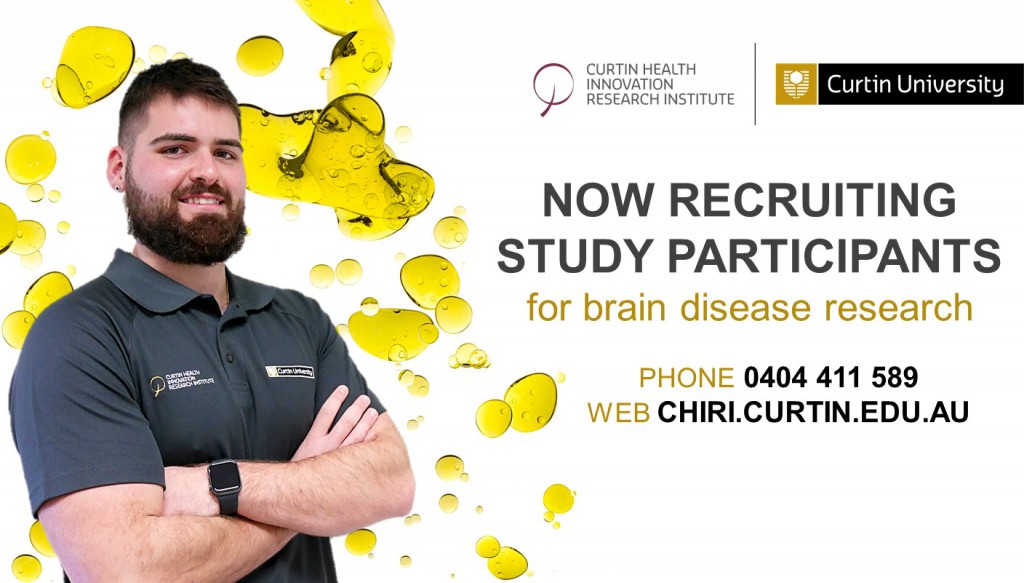Imagine if the key to improving outcomes for patients with degenerative brain diseases such as multiple sclerosis, Parkinson’s disease or Alzheimer’s disease was sitting right there in our kitchens and in the meals we eat.
Our research at the Curtin Health Innovation Research Institute is telling us this is a possibility and our PhD student Zac D’Alonzo is recruiting participants for a study to further investigate this line of research inquiry.
The study is examining how people respond to meals containing commonly consumed dietary oils. In particular, it is looking at the effectiveness of these oils to influence blood metabolites that positively regulate capillary vessel function.
Capillaries are microscopic blood vessels that are critical for brain function and mental health and keep the brain isolated and protected from infectious diseases. CHIRI researchers have discovered that brain capillaries become increasingly leaky with age and that this process is accelerated by poor dietary behaviour. Capillaries that persistently leak cause silent inflammation, which can increase the risk of developing degenerative brain diseases. However, dietary behaviour can also strengthen brain capillaries and reduce disease risk, which is the part Zac and his team are keen to investigate further.
Zac’s PhD is supervised by CHIRI’s Associate Professor Ryusuke Takechi and Dr Virginie Lam. Ryu’s research into the effects of diet, lifestyle, environmental toxins and medication on blood-brain barrier function earned him and CHIRI Director Professor John Mamo the National Health and Medical Research Council’s (NHMRC) most prestigious award for the most potentially innovative and transformative project in 2014. Virginie was awarded a highly competitive Early Career Research Fellowship of more than $327,000 from NHMRC in 2018 to progress her Alzheimer’s disease research.
Study participants will be invited to consume meals containing one of two plant-derived oils, or no oil. Several small blood samples are subsequently taken for analysis.
If selected, you will receive a range of results from the study (glucose, cholesterol and a blood lipid profile) that are relevant to heart health. You would also receive a voucher for your time commitment upon the study’s completion.
To arrange a pre-study screening to see if you qualify, please register your interest through our Eventbrite page or contact CHIRI by phone 0404 411 589 or email.
By participating in this study you will be supporting CHIRI’s work to identify new prevention and treatment strategies for adult diseases.

